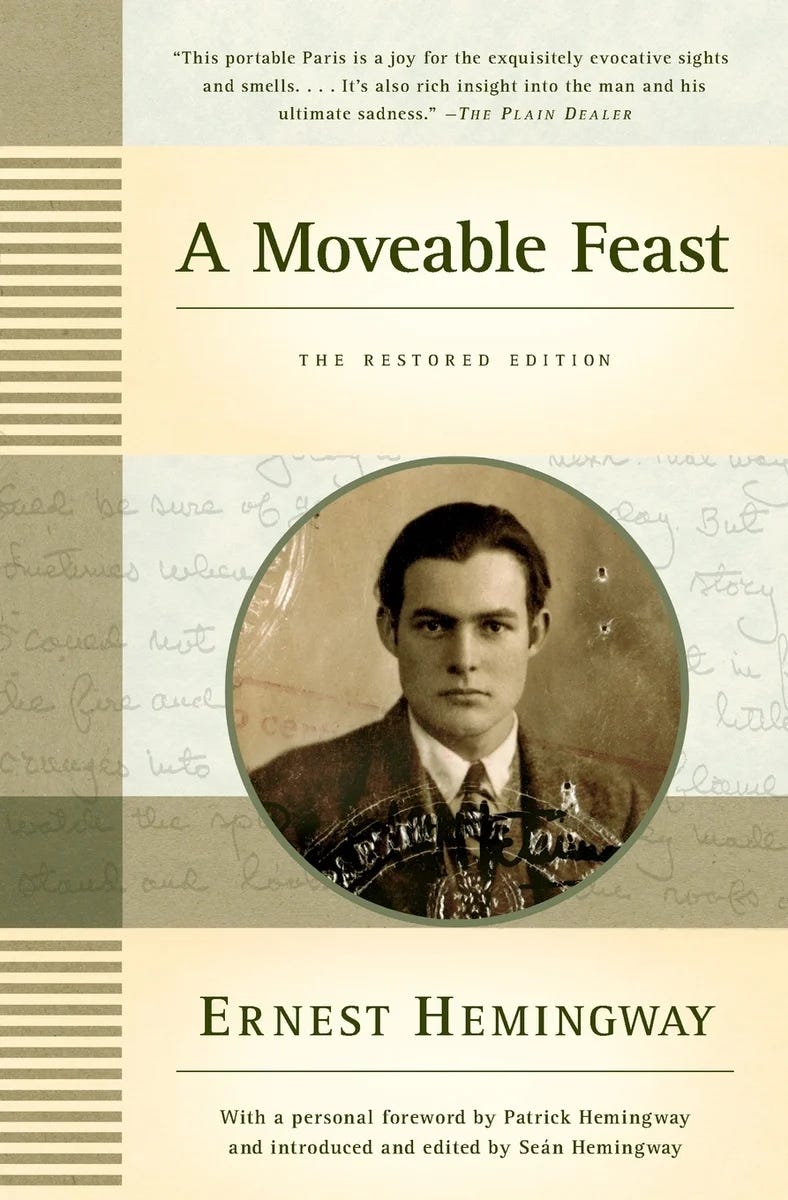Parasocial relationships with dead writers
A few weeks ago, my wife sent me an Instagram reel taken from a recording of the podcast Bruins on Queue in which students from Belmont University touched upon the topic of parasocial relationships:
…our generation [Gen Z] will be the first generation to die with more memories of other people’s lives than our own lives because of social media.
They went on to suggest that they write a song on this topic called Someone Else’s Memories, which one of the hosts called “low-key brutal,” and I, in turn, felt one hundred years old.
Now, as anyone with halfway passable eyesight will tell you, I am not Gen Z. But as a perfectly median Millennial, I have sensed that as my time online has increased over the years, so has my number of parasocial relationships.
There are podcasters, YouTubers, Instagrammers, and more that I have followed for years, in a number of cases for a decade or more, that I clearly have parasocial relationships with. I feel like these people are my friends—or at the very least, they would be my friends, if only they knew that I existed.
Coined by psychologists Donald Horton and R. Richard Wohl in 1956, Psychology Today states that parasocial relationships “…refer to one-sided relationships in which a person develops a strong sense of connection, intimacy, or familiarity with someone they don’t know, most often celebrities or media personalities. These relationships exist only in the mind of the individual, who experiences a bond despite the lack of reciprocity.”
When Horton and Wohl came up with the term, they did so with TV in mind, as they noticed people beginning to develop an illusion of intimacy with on-screen characters. It’s hard to imagine what they would think of the current media landscape, in which you can walk through the world in quite literally another world as you listen to your favorite actor, influencer, or political commentator in your ears.
This got me wondering, can we also have parasocial relationships with characters in books?
A Moveable Feast
I’m currently re-reading Ernest Hemingway’s posthumous memoir A Moveable Feast, which details his time as a struggling writer and journalist in Paris during the 1920s.
During this period, Hemingway was a foreign correspondent for the Toronto Star Weekly and was working on The Sun Also Rises, which was published in 1926. Forget the bearded Hem of our imagination—during his time in Paris, he was in his mid-twenties and looked much closer to his image on the cover of A Moveable Feast, which depicts his passport photo in 1923, than the lumberjack-esque version of himself that we’ve come to know and love.
In the book, Hemingway details his dalliances around Paris and France more generally, which makes it an exciting re-read given my recent move. In much of the book, Hem is going around with The Great Gatsby author F. Scott Fitzgerald.
In one chapter, Hem and Fitz go to Lyon to pick up the latter’s car, only for Fitz to spend the entire evening in a hotel room in Chalon-sur-Saône convinced he is dying (“I want my temperature taken. Then I want my clothes dried and for us to get on an express train for Paris and to go to the American hospital at Neuilly.”). In another, Hem finds himself at Shakespeare and Company speaking with the proprietor, Sylvia Beach, about another regular, Ulysses author James Joyce.
My point in all of this is I’m clearly having a parasocial relationship with Ernest Hemingway, and to a lesser extent F. Scott Fitzgerald, as I’m reading the book! The same was true with Ray Smith in The Dharma Bums, and Holden Caufield in The Catcher in the Rye. They may not be talking about the politics of the moment, or what happened at last night’s Grammys, but I am lapping up every word with bated breath, excited to come back to them the next day.
We’ve all been experiencing parasocial relationships for some time—long before podcasts and Instagram reels came onto the scene. Some are richer than others. And maybe, so long as we’re creating our own memories alongside consuming everyone else’s, there’s nothing wrong with occasionally spending an evening in 1920s Paris.
What characters (real or fictional) have you had a parasocial relationship with?




I'm in a parasocial relationship with my former coworker who is a perfectly median Millennial <3